| |
 Anton: Guten Abend meine freunden. Ich bin Anton Roesch, und das ist mein sohn, Samuel. Anton: Guten Abend meine freunden. Ich bin Anton Roesch, und das ist mein sohn, Samuel. |
 Samuel: Papa, Papa in English, you’re an American now, our family name is Rush…these people all speak English. Samuel: Papa, Papa in English, you’re an American now, our family name is Rush…these people all speak English. |
|
| |
 Anton: Ja, ja…my pardon. Anton: Ja, ja…my pardon. |
 Samuel: It’s ok papa, it’s fine…let me start by telling a little bit about our family…First, in the year 1855. My wife Rebecca is 33, I’m 38 years old, our daughter Phoebe is 11 and our son Francis is 2. Papa is 63 and my mother Permelia is 62…they live with us at the “Old Farm.” The house still stands on the corner of Miller Hill Rd. and Crystal Lake Rd. A new family moved in with a boy and a girl just like our family. My father came to Rensselaer Village which is now called Glass Lake in the 1820s to work in the glass factory. The village was also known as Glass House for a time. Samuel: It’s ok papa, it’s fine…let me start by telling a little bit about our family…First, in the year 1855. My wife Rebecca is 33, I’m 38 years old, our daughter Phoebe is 11 and our son Francis is 2. Papa is 63 and my mother Permelia is 62…they live with us at the “Old Farm.” The house still stands on the corner of Miller Hill Rd. and Crystal Lake Rd. A new family moved in with a boy and a girl just like our family. My father came to Rensselaer Village which is now called Glass Lake in the 1820s to work in the glass factory. The village was also known as Glass House for a time. |
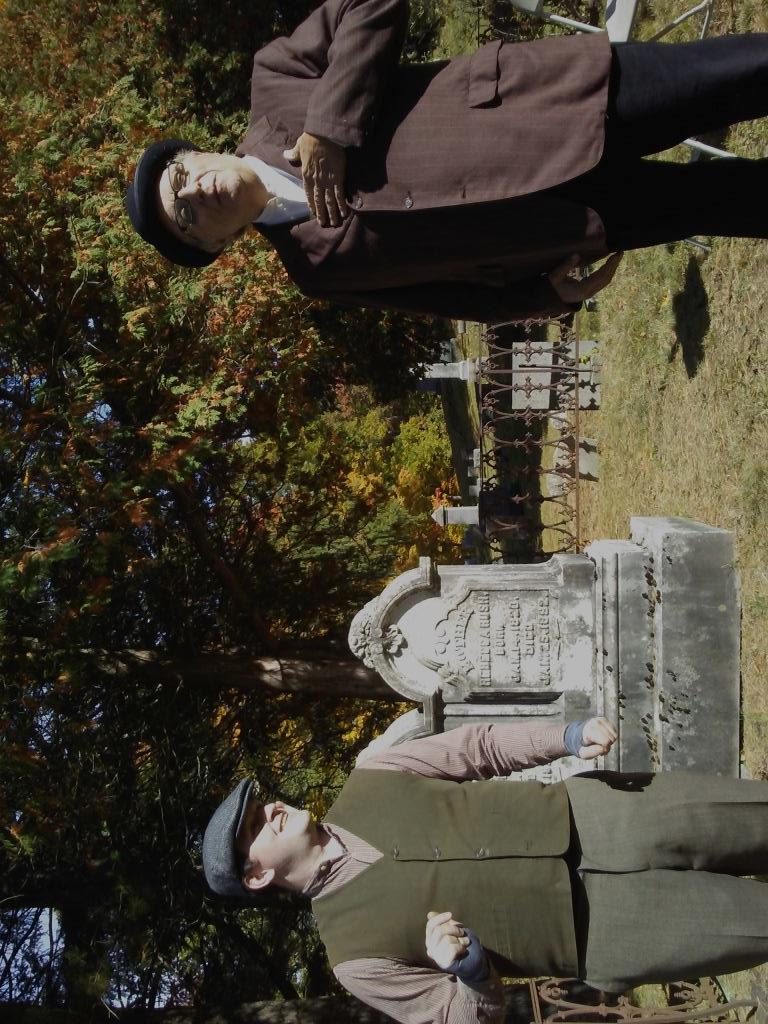 |
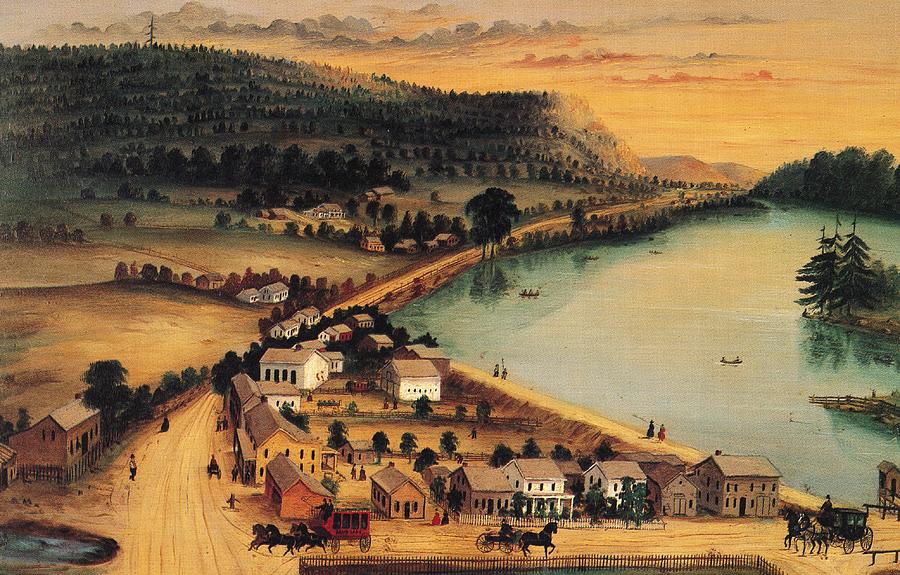 |
 Anton: Ja, gutmachen….yes, correct Samuel. I came to this part of New York State from Deutschland/ Germany just to work in the glass factory. When I settled here I built a house on the lake very close to the factory, it too still stands, 186 Glass Lake Rd. In fact, a few years before I came to Glass House the Town of Sand Lake was created, it was 1812 and Sand Lake was formed from the Towns of Greenbush and Berlin. Later in 1843 a part of Greenbush was taken off, and in 1848 the northern half of Sand Lake became Poestenkill. Anton: Ja, gutmachen….yes, correct Samuel. I came to this part of New York State from Deutschland/ Germany just to work in the glass factory. When I settled here I built a house on the lake very close to the factory, it too still stands, 186 Glass Lake Rd. In fact, a few years before I came to Glass House the Town of Sand Lake was created, it was 1812 and Sand Lake was formed from the Towns of Greenbush and Berlin. Later in 1843 a part of Greenbush was taken off, and in 1848 the northern half of Sand Lake became Poestenkill.
Work in the glass factory was dangerous because of the high temperature of the furnaces and the risk of fire. The glass factory burned to the ground in 1816 and was revived by Fox and Crandall and later Mr. Richard Knowlson. In 1835 Mr. Knowlson sold the glass factory. I was one of the new owners along with Statler and Webster. We called our company Statler Rush and Co. The business was very successful, but in 1852 the factory burned and was never rebuilt. It was sad…we employed almost 75 people at one time and it made our village very prosperous. |
 Samuel: But Papa, you told me that it became much harder to make glass because the sand was bad. It was not of good quality. Samuel: But Papa, you told me that it became much harder to make glass because the sand was bad. It was not of good quality. |
|
| |
 Anton: Ja, we had to import sand over the Stephentown mountains from the Berkshire hills. But even so, our workmen were the best, especially the Scotsmen. They were the best glassblowers in the world, making jars, bowls, pitchers, canes and other “whimseys.” The Sand Lake Historical Society has a collection on display in the town library. Some window glass from the factory can still be seen in the old houses in Glass Lake today. Anton: Ja, we had to import sand over the Stephentown mountains from the Berkshire hills. But even so, our workmen were the best, especially the Scotsmen. They were the best glassblowers in the world, making jars, bowls, pitchers, canes and other “whimseys.” The Sand Lake Historical Society has a collection on display in the town library. Some window glass from the factory can still be seen in the old houses in Glass Lake today. |
 Samuel: You were a good businessman papa and did many good things for Glass House Village, but we still made a good life after the glass factory. Remember, you helped me build my house on Miller Hill Rd. Phoebe calls it the house that father built, and it would not have happened without you. And Papa, this was a wonderful place to grow up. It was only a short walk to Sand Lake, that’s the lake they call Crystal Lake today. Samuel: You were a good businessman papa and did many good things for Glass House Village, but we still made a good life after the glass factory. Remember, you helped me build my house on Miller Hill Rd. Phoebe calls it the house that father built, and it would not have happened without you. And Papa, this was a wonderful place to grow up. It was only a short walk to Sand Lake, that’s the lake they call Crystal Lake today.
Our school house, Averill Park District 7, still stands and is now the home of the American Legion. |
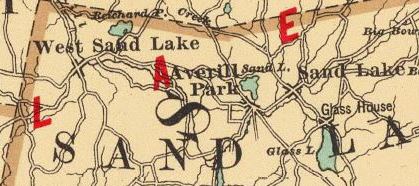
(This 1895 map still shows the hamlet of Glass House. Note also that what we know as Crystal Lake is still shown here as Sand Lake!)
|
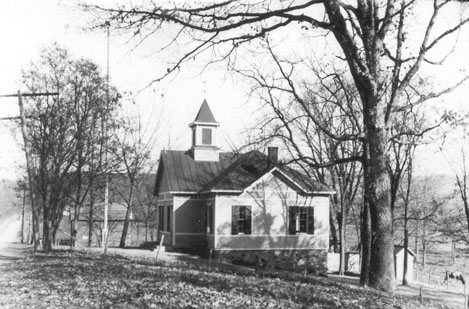 |
 Anton: It was a building that everyone in the town of Averill Park was proud of, the District 7 School was bigger than most of the schools at the time, in fact we all called it the “two room schoolhouse.” You had a beautiful walk to school each morning along Crystal Lake Road into the hamlet of Sand Lake, now Averill Park, past the old hotels. Anton: It was a building that everyone in the town of Averill Park was proud of, the District 7 School was bigger than most of the schools at the time, in fact we all called it the “two room schoolhouse.” You had a beautiful walk to school each morning along Crystal Lake Road into the hamlet of Sand Lake, now Averill Park, past the old hotels.
The town was so alive, with many people working in the mills. There was a lumber mill, E.&J. Merwin’s paper mill, a cotton mill and a knitting mill. These mills employed many workers and I can still see the workmen walking to work down Burden Lake Road with their lunch pails in their hands. The mills helped the area to grow, but in August 1891, a flood caused a few of the mills to almost go out of business. The paper mill’s dam broke and they lost all their paper stock. But you were talking about school, Samuel; go on with it… |
 Samuel: How schools have changed…in those days it was the “3Rs”: reading, writing, and ‘rithmetic. It’s funny, but when I think back, all the lessons included important life lessons, especially writing. Samuel: How schools have changed…in those days it was the “3Rs”: reading, writing, and ‘rithmetic. It’s funny, but when I think back, all the lessons included important life lessons, especially writing. |
|
| |
 Anton: You know Samuel, I saved all your penmanship copy books, you spent so much time on those lessons. Anton: You know Samuel, I saved all your penmanship copy books, you spent so much time on those lessons. |
 Samuel: Those writing lessons took me hours, copying quotes; some Old Testament, some folk
wisdom, some just plain common sense. Samuel: Those writing lessons took me hours, copying quotes; some Old Testament, some folk
wisdom, some just plain common sense. |
|
| |
 Anton: Do you remember any you can tell us now? Anton: Do you remember any you can tell us now? |
 Samuel: I remember a few Papa; I think they can have meaning for all people through the ages. Here are three: “Fidelity and truth are the foundation of justice,” “Disappointments are often blessings in disguise,” and “It’s good to have a friend, but bad to need one.”
I realize that I was about 14 when I learned these quotes, it was 1845. Samuel: I remember a few Papa; I think they can have meaning for all people through the ages. Here are three: “Fidelity and truth are the foundation of justice,” “Disappointments are often blessings in disguise,” and “It’s good to have a friend, but bad to need one.”
I realize that I was about 14 when I learned these quotes, it was 1845. |
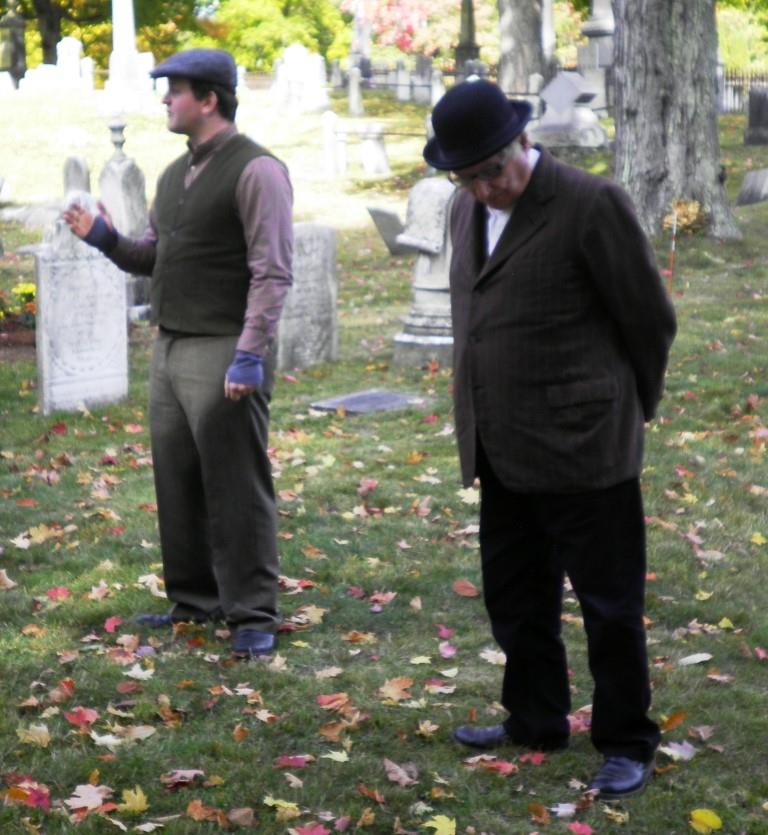 |
| |
 Anton: You’re right Samuel, they are just as important today as they were in 1845…I guess we could also say, the more things change, the more they stay the same. Anton: You’re right Samuel, they are just as important today as they were in 1845…I guess we could also say, the more things change, the more they stay the same. |
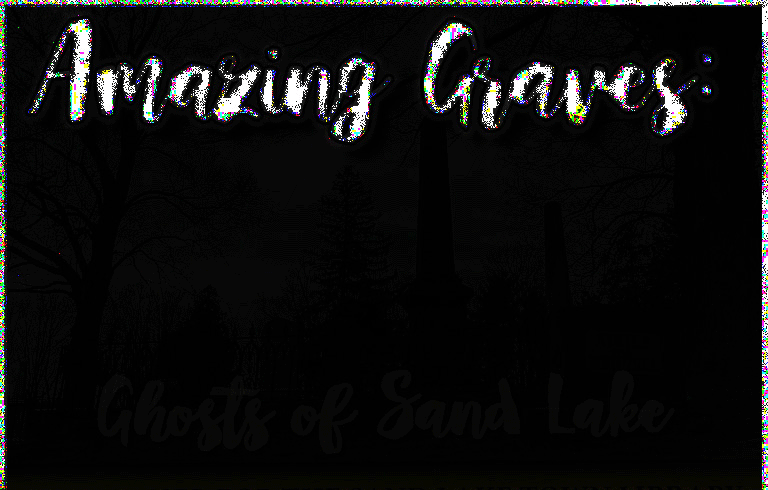
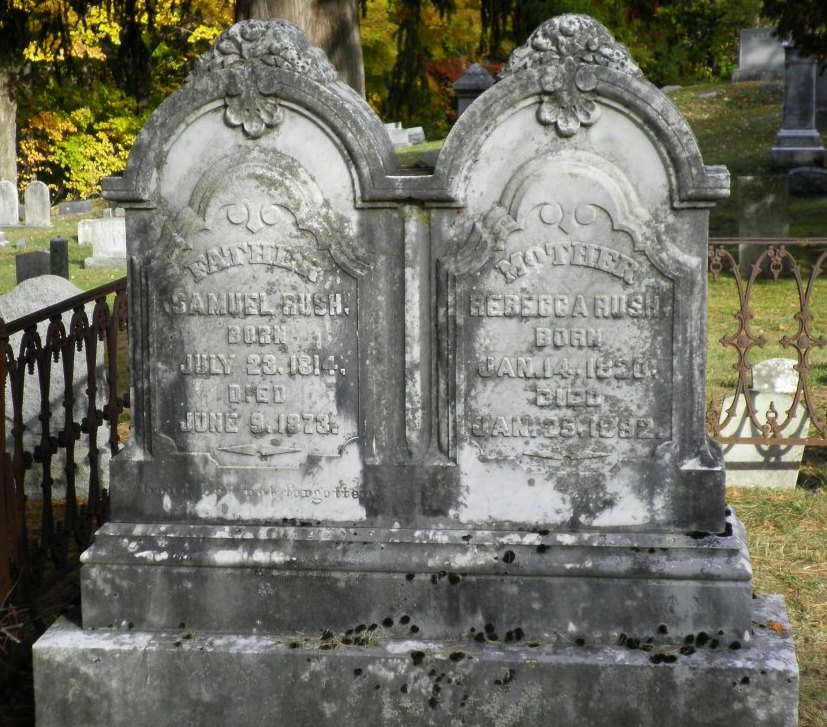


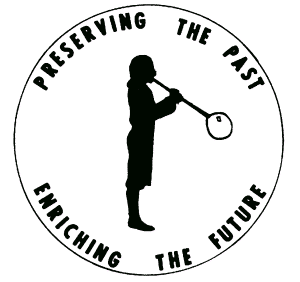 2016; revised
January 13, 2024
-- asm © 2002-2024 Sand Lake Historical Society; all rights reserved.
2016; revised
January 13, 2024
-- asm © 2002-2024 Sand Lake Historical Society; all rights reserved.